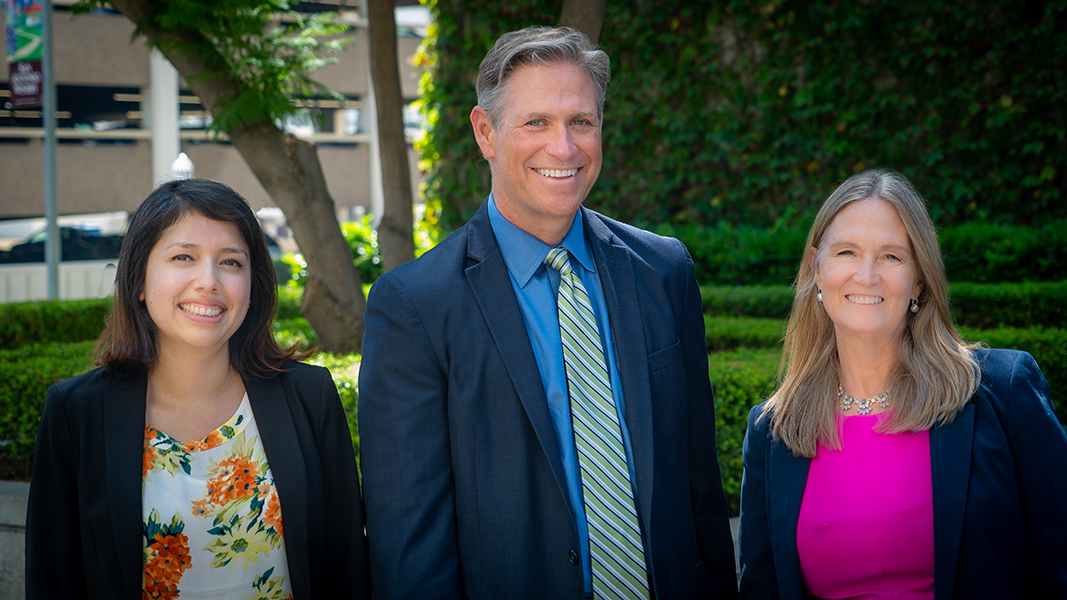
Stress levels are running high with a pandemic, global recession, and social injustice threatening livelihoods and lives. While the USC Office of the Ombuds can’t resolve the world’s woes, it can serve as a confidential, impartial, informal, and independent problem-solving resource for students, faculty and staff.
The University Ombuds—Thomas Kosakowski at the Health Sciences Campus, and Katherine Greenwood at the University Park Campus—offer a wide range of free resources to help navigate conflicts ranging from academic issues to interpersonal matters to workplace stresses.
“One thing that Kathie and I have encountered is that conflict, at its core, is usually about a couple of things,” said Kosakowski. “Conflicts often come down to feelings of disrespect.”
Greenwood added: “I would say a concept of unfairness also brings a lot of people to our offices.”
To help with these types of challenges, the Ombuds are available for one-on-one appointments, departmental trainings, and workshop-style “open houses” on Wednesdays at noon via Zoom. Recent open houses have addressed topics including dealing with frustrating people, managing inter-generational conflict and tackling the “COVID-19 blues.”
“Because we are neutral and impartial, we do not advocate for individuals. Rather, we can help them analyze their conflict and brainstorm some options on how they might proceed,” said Greenwood.
As dispute resolution professionals, the Ombuds often share tools such as behavioral models, communication techniques, and exercises. One particularly helpful tool is the Thomas Kilmann Inventory (TKI) model, which posits that everyone has a predisposition toward an approach for managing conflict: avoidance, accommodation, competition, compromise, or collaboration. The model can help people recognize their own styles, and encourage them to try a variety of approaches to suit different situations.
Before USC opened its Office of the Ombuds in 2019, Kosakowski spent 12 years as the Ombuds for the Health System at UCLA. He also established the Ombuds Office at Claremont Graduate University, and served as the Interim Director of the Ombuds Office at the University of California, Riverside. Previously, he worked both as an attorney and as a court-appointed mediator of the Los Angeles Superior Court.
“I was attracted to the practice of law, initially, because I wanted to help people in difficult situations, and that applies in this work as well,” he said. “After being an attorney for about a decade, I realized that I was not happy. And the career counseling process generated a couple of different careers, where I could transfer some skills and experience, and that would fit better with my personality and interests. Being a university ombuds was one of them, and it really has been a great fit.”
Prior to coming to USC, Greenwood directed the Office of the Ombuds at the University of California, Davis and the UC Davis Medical Center, and previously served as an ombuds at the University of Colorado Denver. She also has extensive backgrounds in both law and academia: she worked as an international maritime attorney with firms in New York, San Francisco, and London, and as an adjunct faculty member teaching law at Loyola University in Chicago.
“What I love about ombuds-ing is that it’s not adversarial,” said Greenwood. “It’s about conflict management. We’re trying to get people to collaborate to find some solutions. So that’s refreshing.”
As the USC community adjusts to the unique stresses of the COVID-19 pandemic, conflict is inevitable. And while conflict can’t always be resolved, it can usually be managed.
“People underestimate the value of thoughtful questioning,” said Kosakowski. “People go into conflict too often thinking, ‘Well, this is a negotiation where I need to tell the other person why I need something and what I need.’ When in reality, they’re likely to be more successful if they spend a lot of time asking questions to understand the other person’s position and perspective. If you can mine all that information, then you can often present a solution that would work for them that you would find acceptable.”
“It’s so important to be curious,” added Greenwood. “That curiosity can really help with conflict.”
For more information, visit https://ombuds.usc.edu. To attend an Ombuds Open House, join on Wednesdays at noon via https://uscprovost.zoom.us/j/584636373.
